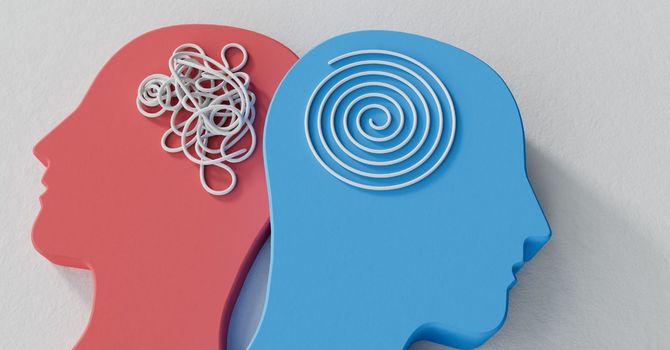Attention-Deficit/Hyperactivity Disorder (ADHD) is a common neurobehavioral disorder that affects countless individuals worldwide. While it's often associated with hyperactive young boys, a significant number of girls and women grapple with this condition, often undiagnosed and misunderstood. Today, I want to shed light on ADHD in women and girls, drawing from both scientific research and my own personal journey.
The Hidden Struggles of Women and Girls with ADHD
According to a comprehensive review by Patricia O. Quinn, MD, and Manisha Madhoo, MD, titled "A Review of Attention-Deficit/Hyperactivity Disorder in Women and Girls: Uncovering This Hidden Diagnosis," ADHD in females often presents differently than in males. While boys might exhibit more externalizing behaviors like hyperactivity, girls tend to show more internalizing symptoms, such as inattentiveness (Quinn & Madhoo). This difference in symptom presentation can lead to many girls slipping through the cracks, their struggles dismissed or misattributed to other causes.
Moreover, girls with ADHD often face unique challenges. They might develop better coping strategies to mask their symptoms, making their struggles less visible to the outside world. Additionally, common comorbidities like anxiety and depression can overshadow ADHD, leading to misdiagnosis (Quinn & Madhoo).
My Personal Struggle with ADHD
For years, I grappled with attention challenges that I couldn't quite put a finger on. I'd find myself drifting off during conversations, missing out on things my parents or friends would say to me, and struggling to complete tasks at a quick pace that seemed simple to others. I was perpetually burnt out, trying to keep up with a world that seemed to move at a pace I couldn't match, thus propelling my anxious and depressive tendencies.
I was incredibly hard on myself, attributing my struggles to laziness or a lack of discipline. The internal dialogue was relentless: "Why can't you just focus?" "Why are you always so scattered?" "Why do I work harder for lower grades than others?"
It wasn't until I stumbled upon information about ADHD in women that the pieces began to fall into place. The symptoms described mirrored my experiences. The realization was both a relief and a revelation. All those years, I wasn't just "being lazy" or "not trying hard enough." I had undiagnosed ADHD.
The Importance of Proper Diagnosis
Recognizing ADHD in women and girls is crucial. If left undiagnosed and untreated, they face the same negative consequences as boys, including academic struggles and behavioral challenges. Furthermore, hormonal fluctuations can influence ADHD symptoms in women, adding another layer of complexity to their experiences (Quinn & Madhoo).
It's essential for healthcare professionals to be aware of the nuances of ADHD in females. Proper diagnosis can pave the way for tailored treatments, support, and understanding, making a world of difference in the lives of those affected. At Eckert Centre, we recognize this need and provide comprehensive ADHD assessments, coaching, and counselling to ensure individuals receive the care and guidance they deserve. A practice we deem and know is essential for many individuals.
Conclusion
ADHD in women and girls is a pressing issue that demands more awareness and understanding. As someone who has walked this path, I can attest to the challenges and the profound difference that proper diagnosis and support can make. Let's work together to shed light on this hidden diagnosis, ensuring that every individual, regardless of gender, receives the care and understanding they deserve.
Works Cited:
Quinn, P. O., & Madhoo, M. (2012). A Review of Attention-Deficit/Hyperactivity Disorder in Women and Girls: Uncovering This Hidden Diagnosis. The Primary Care Companion for CNS Disorders.
Madison is a Psychology Assistant; Digital Marketing Assistant at Eckert Centre. She is a university student majoring in psychology at the University of British Columbia. She is our blogger in residence, and we are grateful she is sharing her writing skills along with her mental health journey. May her young wisdom help all of us grow our “Wise Self.” For more information or to book an appointment, visit www.eckertcentre.com or email our team at info@eckert- psychology.com




